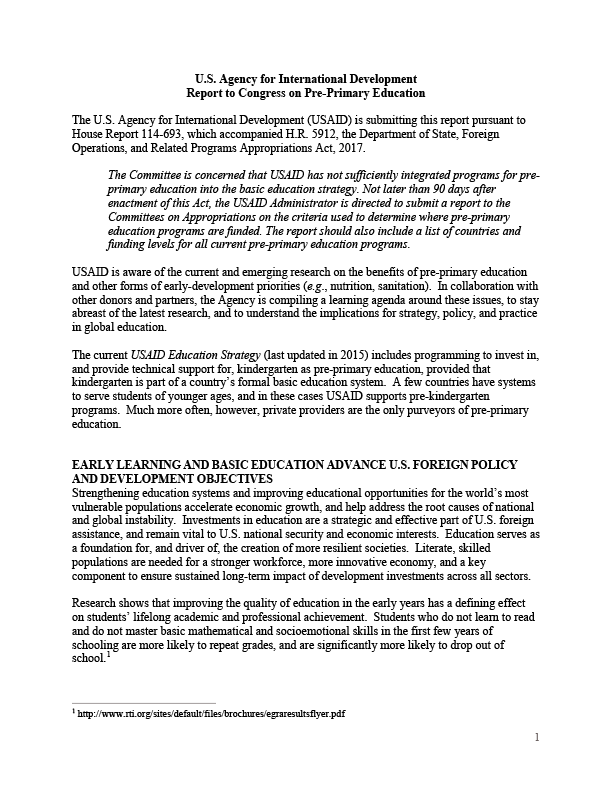The U.S. Agency for International Development (USAID) is submitting this report pursuant to House Report 114-693, which accompanied H.R. 5912, the Department of State, Foreign Operations, and Related Programs Appropriations Act, 2017.
The Committee is concerned that USAID has not sufficiently integrated programs for pre-primary education into the basic education strategy. Not later than 90 days after enactment of this Act, the USAID Administrator is directed to submit a report to the Committees on Appropriations on the criteria used to determine where pre-primary education programs are funded. The report should also include a list of countries and funding levels for all current pre-primary education programs.
USAID is aware of the current and emerging research on the benefits of pre-primary education and other forms of early-development priorities (e.g., nutrition, sanitation). In collaboration with other donors and partners, the Agency is compiling a learning agenda around these issues, to stay abreast of the latest research, and to understand the implications for strategy, policy, and practice in global education.
The current USAID Education Strategy (last updated in 2015) includes programming to invest in, and provide technical support for, kindergarten as pre-primary education, provided that kindergarten is part of a country’s formal basic education system. A few countries have systems to serve students of younger ages, and in these cases USAID supports pre-kindergarten programs. Much more often, however, private providers are the only purveyors of pre-primary education.








Comment
Make a general inquiry or suggest an improvement.